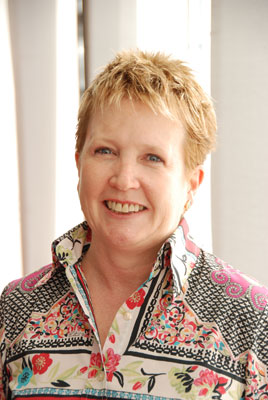Skin Cancer and Melanoma

Skin Cancer and Melanoma
Skin experts came together in Darwin for the Annual Scientific Meeting of the Australasian College of Dermatologists to discuss the latest research and information on skin cancer, melanoma, acne and new skin treatments. The specialists discussed and presented information on skin surveillance for melanoma, emerging treatments for advanced melanoma and the new rising trend of skin whitening.
Interview with Dr. Cathy Reid
What information has been released on skin cancer and melanoma?
Dr. Cathy Reid: We know the factors that make people more susceptible to melanoma; everyone has to have their moles checked, but if you have any of the risk factors you're the sort that we worry about.
What are the risk factors for melanoma?
Dr. Cathy Reid: They are:
If you're fair skinned, red head
If you have had lots of sun burn in childhood
If you have a greater than average number of moles
If there is melanoma in your family, like if your mum, brother, dad or sister have had a melanoma.
Or, if you have had one melanoma you are more likely to get another one.
If a mother or father has had a melanoma, what does that mean for their children?
Dr. Cathy Reid: It means, that the risk for her children is 6-8 times increased.
What should people, who are in the high risk groups for melanoma, do?
Dr. Cathy Reid: They have to be vigilant; we recommend that people check their skin every three months, rather like people recommend breast self-examination.
What methods should be used to check the skin for melanoma or other skin cancers?
Dr. Cathy Reid: Just by looking at it. What you are looking for is;
Has anything new popped up?
Has anything changed?
If you are worried that you cannot see your back, you can often get a family member to take a picture of your back and get someone to compare that, we all have digital cameras these days. Basically, if something changes or something appears very rapidly, your first port of call should be your General Practitioner to have it checked out, particularly if you are one of those people who have one or other of the risk factors.
Is there any new information on treatments for melanoma?
Dr. Cathy Reid: There are new treatments, being trialed, in Australia by Dermatologists to treat melanoma that has spread, these are showing promising results. The problem with melanoma is that up-to-date we haven't had anything, really, that makes much difference. It is one of the cancers that is very resistant to treatment.
Is the main thing to stay out of the sun?
Dr. Cathy Reid: Yes, that is one of the factors. You have to bring in the other risk factors, as well, the family history. The sun is certainly something we can do something about; we can't do much about the family history and that sort of thing.
Can you explain the trend in skin whitening?
Dr. Cathy Reid: There has been a lot of information presented on this. Melasma is pigmentary changes on the face, most commonly seen in young women; they present as patchy darkened skin colour over the cheeks and maybe across the forehead and across the upper lip. This condition was originally called the mask of pregnancy, because it was quite common in pregnant woman. We think that the factors are a combination of hormonal factors and the skin. As we get older, no-one wants blotchy, discolouration on their skin and now that we have a large immigrant population of dark skin, where it is even more noticeable, there is a lot of interest in things we can do to lighten the darker patches. The treatment lightens the darkened patches, not the skin colour, which are appearing on the face, in those areas.
I read that skin whitening has becoming more popular than anti-wrinkle creams?
Dr. Cathy Reid: Yes. People are still interested in anti-wrinkling, everyone is interested in that. Just there are a few more things available now to reduce pigmentation of the skin.
MORE
- Cold Sores
- Glandular Fever
- FAQ About Irritable Bowel Syndrome
- February is Ovarian Cancer Awareness Month
- Help find answers for Herpes
- National Eczema Awareness Week
- Claire Naffah It's Dementia
- Skin Cancer and Melanoma
- Treatment for Early-stage Breast Cancer
- Structured Reporting for Cancer Patients
- Tuberculosis



